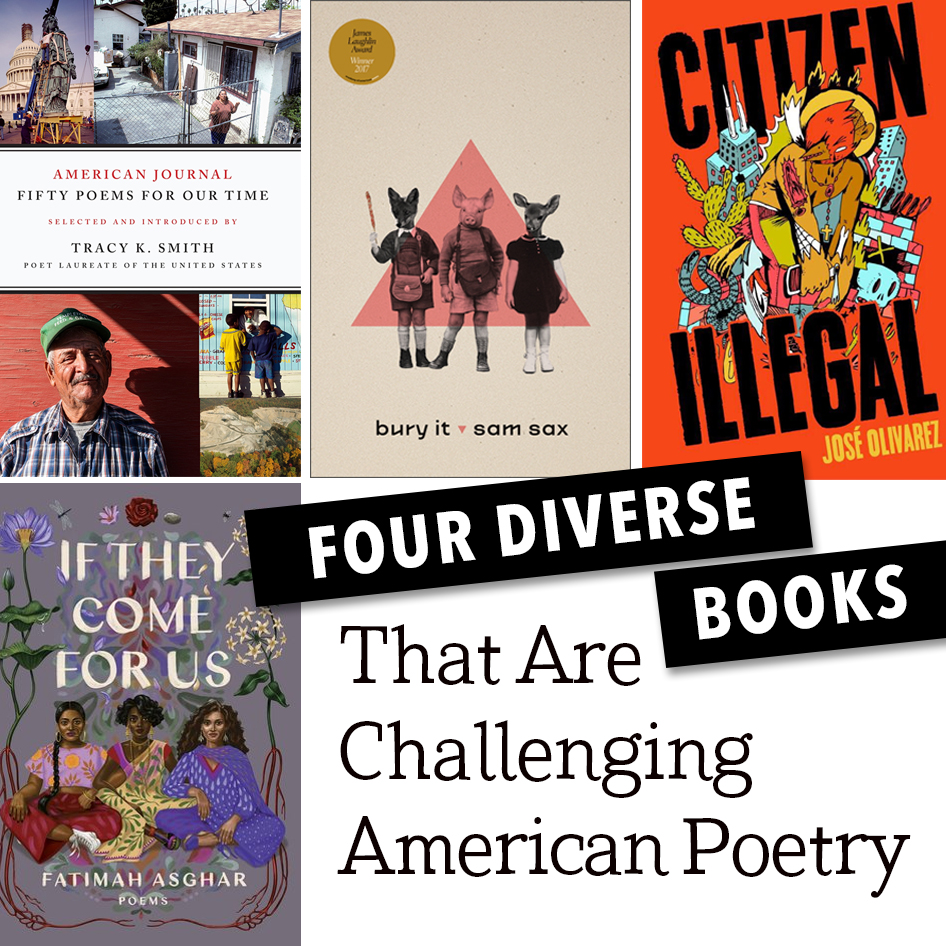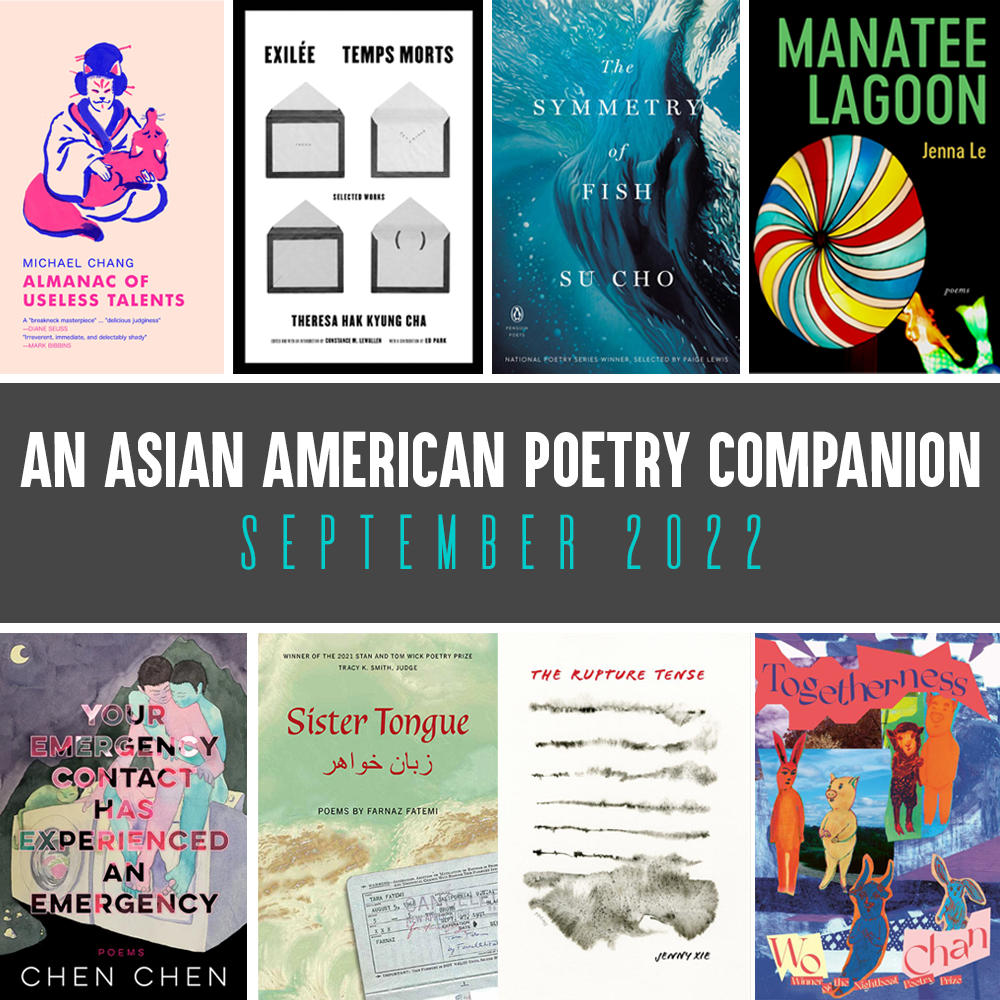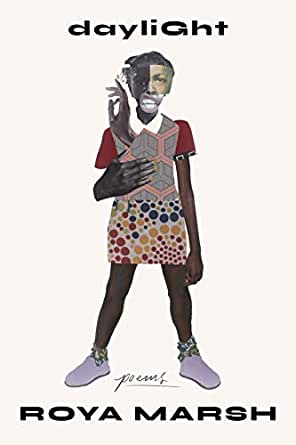
This past summer, the NEH released data that sent news outlets into a frenzy: over the past five years, the number of poetry readers has nearly doubled to 28 million adults. To us, this news was incredibly validating and exciting, given the staggering variety of powerful contemporary poems we’ve been lucky to read and publish over the years. Even as we’ve cultivated Lantern Review as a space for Asian American poetry, we recognize that the lantern is a symbol of enlightenment across cultures, a guiding light that celebrates continued exploration of disparate but interlocking communities. So this month, we pay homage to our namesake and highlight four recent poetry titles that we’ve loved for the ways they’ve challenged exclusionary definitions of “Americanness” in political, social, and literary life. Whether you are a regular reader of poetry or a newcomer to verse, we hope these books can serve as a guide to the diverse traditions of American poetry.
* * *
American Journal: Fifty Poems for Our Time, selected by Tracy K. Smith (Graywolf, 2018)
The title of US Poet Laureate Tracy K. Smith’s anthology invokes past laureate Robert Hayden and his poem, “[American Journal].” But while Hayden’s speaker is an alien who observes “the americans this baffling / multi people” from the outside in, Smith’s assembled communities of voices consider their various amorphous Americas from the interior. Several of our favorite APA poets—such as Tina Chang, Cathy Park Hong, Solmaz Sharif, and John Yau—appear among the radiant, haunting, and witty voices herein. Wrought from revenge for seized land, the joys of fatherhood, the despair of unimaginable loss, the wonder of what remains, these selected poems—or “reports,” as Smith calls them—consider and coax and challenge borders at a moment when our definitions of “nation” and “neighbor” are increasingly unstable.
Citizen Illegal by José Olivarez (Haymarket Books, 2018)
Citizen Illegal is a fierce and playful rewrite of America through Chicanx experiences. José Olivarez exposes the quintessential dissonance and violence of everyday America—in one poem, a white partygoer claims the absence of Mexicans in “this part of New York City” even as the speaker beholds a waiter who “pushes his brown self through the kitchen door” (31). But if white supremacy systematically negates black, brown, and indigenous experiences, Olivarez is a cunning new architect who seizes and repurposes that scaffold. By Olivarez’s pen, heaven is no longer the sterile playspace of the white and moneyed. Instead, it is “gross” (a space where Mexican women can finally revel in novelas), and it is intimate (there are no gentrifiers who destroy family and language). Each poem is unsparing, negating white America’s practices of erasure and affirming Mexican American experiences with song.
bury it by sam sax (Wesleyan University Press, 2018)
The crevices between boy and monster, dead and undead are dangerously thin, and sam sax toes the line brilliantly. He concludes this, his second collection, with a hefty question: “how deep am i indebted to the dead?” (83). The book strives to answer this from the beginning. In the first poem, a fisherman perceives a tug and pulls up “boy, // after boy, / after boy, / after boy, / …” (1). The confessional intertwines with the surreal in these poems of mourning, which salute gay teens lost to suicide, forebears consumed by AIDS, and betraying lovers who have in turn been betrayed by others. This collection is sax’s incantation of a vital lineage—including figures like W. H. Auden, James Baldwin, Tyler Clementi—that makes the dead marvelously undead.
If They Come For Us by Fatimah Asghar (OneWorld, 2018)
If They Come For Us reminds us that the titular question may not be “if” but “when.” Fatimah Asghar writes from her personal and political history as the daughter of Pakistani, Kashmiri, and Muslim diasporas, observing that any sense of material and emotional security must reconcile with the knowledge that “I build & build / & someone takes it away.” In response, Asghar fashions poems that probe brutality while preserving the ordinary: She describes an encounter between her Barbies and stuffed animals, an erotic playdate that devolves into military conquest (35). She points out that perpetrators of ethnic cleansing and genocide during the India/Pakistan partition of 1947 were “Men who wear matching shirts,” “neighbors who like to kill each other” (16). Her measured observations of the ordinary also honor the notions of shelter, kin, and abundance—which are not lost to bloodshed and trauma but are grounded in an auntie’s laughter, a track team’s devotion, and endless jello at the Old Country Buffet. In her essay “Against Witness,” Cathy Park Hong argues that poetry has failed remembrance in this “era of total recall.” Accordingly, Asghar’s poems propel beyond memory and instead stage everyday scenes that grapple with historical atrocity and personal loss. A continuing legacy of violence, she reminds us, “is the cost / of looking the other way.”
* * *
As always, there are so many more incredible new collections than we have space to describe. Here are just a few other other recent books, including a few of this year’s National Book Awards’ finalists, that have been on our radar for the ways in which they push or transform the boundaries of Americanness and American poetry:
American Sonnets for My Past and Future Assassin by Terrance Hayes (Penguin, 2018)
Ghost Of by Diana Khoi Nguyen (Omnidawn Publishing, 2018)
Eye Level by Jenny Xie (Graywolf Press, 2018)
Oceanic by Aimee Nezhukumatathil (Copper Canyon Press, 2018)
Not Here by Hieu Minh Nguyen (Coffee House Press, 2018)
We Play A Game by Duy Doan (Yale University Press, 2018)
The Buddha Wonders if She Is Having a Mid-Life Crisis by Luisa A. Igloria (Phoenicia Publishing, 2018)
Bird of the Indian Subcontinent by Subhashini Kaligotla (The (Great) Indian Poetry Collective, 2018)
* * *
What boundary-transgressing collections would you recommend to new readers of poetry? To old-timers? Share them with us in the comments or let us know on Twitter, Facebook, or Instagram (@LanternReview).


